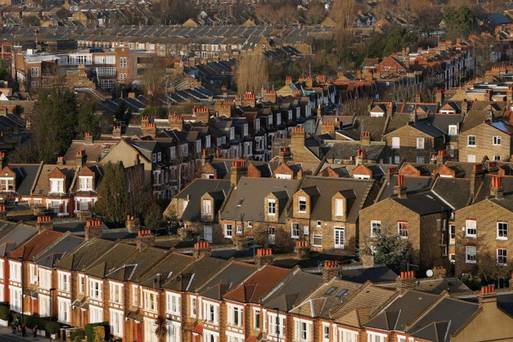One in 12 households across Northern Ireland is in negative equity, it can be revealed.
Indeed, almost half of all UK houses stuck in negative equity are located here – and one local property expert has warned that “the dam is about to burst”.
The shocking statistics show that, in the past four years, the number of local homes where the mortgage is higher than the value of the property has risen from 44,000 in 2011 to more than 56,000 in 2015.
But the boss of GDP Equity Experts told this newspaper there could be as many as 70,000 local households in negative equity – or one in 10.
Conor Devine, who runs the Ulster brokerage that acts as a go-between for homeowners and their lenders over unmanageable mortgages, also said the problem was “massive”.
“At the minute we are handling £220m of distressed debt,” he said.
“When interest rates go up it will be the straw that breaks the camel’s back for thousands of people.
“There is a zombie nation of borrowers in Northern Ireland who are currently in a lot of debt and it’s a terrifying ordeal because they just don’t know what to do with it.”
The figures from HML, a subsidiary of Computershare Group that handles mortgage administration for many other lenders, provide the most up-to-date analysis of the situation and they show that the problem is much worse here than anywhere else in the UK.
A staggering 56,034 households are recorded as being in negative equity in the first quarter of 2015.
That’s up 27.4% from the first quarter of 2011, when there were 44,000 homes with a mortgage higher than the value of the property.
Mr Devine, whose company had debts of £14m written off in the first six months of this year, said the situation was going to get much worse.
“The dam is about to burst because there was an avalanche of interest-only mortgages handed out in the glory days,” he said.
“There are three types of people in Northern Ireland. There are those who are doing well (around 10% of the population), those who are running out of money and those who have run out of money.”
Northern Ireland is the only part of the UK where negative equity isn’t declining, the data shows.
In London, for example, the number of homes affected is just 219 – down 99.8% in the past four years.
According to the figures, of the 120,511 UK households in negative equity, 56,034 of them are here.
Economist John Simpson said HML’s figures mean that one in every 12 homes here is in negative equity.
“The problem was self-induced; the banks and building societies caused it by being far too prepared to lend,” he said.
“Other parts of the United Kingdom are getting better and coming out of negative equity, but we were in it so deep it’s going to take much longer to come out of it.”
Mr Simpson said there were fears that the first rise in interest rates could pull the rug from many local households struggling in negative equity.
“For most people there is no escape clause and no magic rescue is going to come from government or from any other financial source,” he said.
“It is particularly worrying that so many people will be faced with this continuing problem, bearing in mind that Northern Ireland is in a process of an economic recovery that is proving very slow indeed and the overhang of negative equity is one of the factors making that recovery slower.”
Janet Hunt, director of Housing Rights, urged people with mortgage problems to seek immediate help.
“Whilst some improvement has been noted in recent months, the problem of negative equity remains widespread in our local housing market,” she said.
“Having a home which is in negative equity causes difficulties for people who wish to move and is a particular burden for people who are struggling to keep up the repayments on their current home.
“We urge anyone who is struggling to seek help. Losing your home is not inevitable.”
View this and more articles on the Belfast Telegraph.
Caption: One in 12 households across Northern Ireland is in negative equity, it can be revealed




